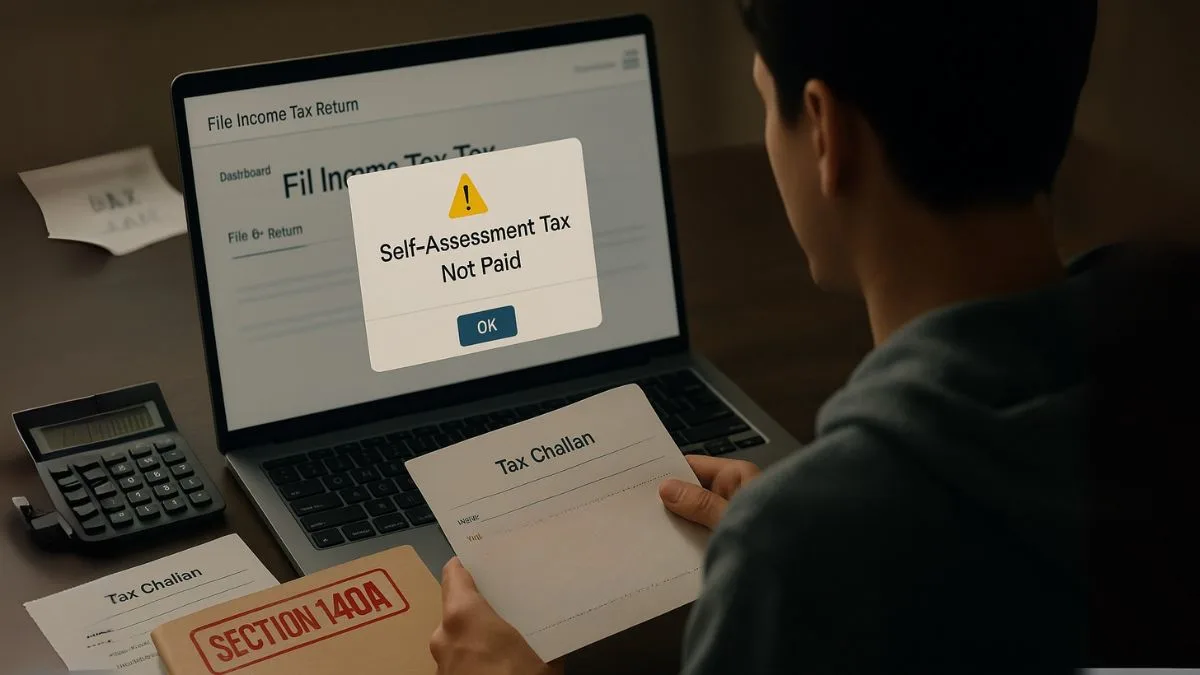
Filing your income tax return may seem like a straightforward process, but there’s an often-overlooked rule you can’t afford to miss—Section 140A. This provision requires you to pay your self-assessment tax before submitting your ITR. Skip this crucial step, & the system won’t even allow you to file your return—a true game-changer that could delay your entire process..
What’s Self‑Assessment Tax & Why It Matters
After accounting for TDS, advance tax, & all eligible deductions, you might still owe some extra tax. This residual amount is your self-assessment tax. Under Section 140A(1), the law expects you to pay it along with any applicable interest before you hit “submit” on your return.
If you skip it? You’re technically in default from day one, & the system can refuse your filing or apply heavy interest on the overdue amount."
How It Affects Your Tax Filing Timeline
Self-assessment tax must be paid before filing under Sections 139, 142(1), 148, or 153A.
So even if you’ve filed your return, the system checks if the tax & interest are paid—otherwise, it rejects or delays your filing. And yes, online portals enforce this rule strictly.
How Interest Is Calculated If You're Late
Not paying self-assessment tax on time means you’ll owe interest under Sections 234A/ 234B / 234C. That means 1% per month on the outstanding amount. And Section 140A makes sure unpaid self-assessment is first adjusted toward interest, before the principal. So, delay = bad news."
Who Needs to Worry Most?
Whether you're an employee, a freelancer, or a small business owner, the rule applies to all taxpayers. Even if your employer took TDS or you paid advance tax, any leftover liability must be squared off before filing. Failing to do so may trigger notices like those under Sections 142 or 143(2).
Easy Steps to Stay Compliant
- Do your tax math: Calculate total income, deduct TDS/advance tax.
- Pay the difference online through authorised challans.
- File your ITR with proof of payment.
- Save the transaction details—Challan ITNS 280 is usually used for self-assessment.
- Track your return & refunds—the system won’t proceed otherwise."
Why Section 140A Saves You from Trouble
This requirement isn't just bureaucratic. It ensures you pay your dues first, keeping the system fair for everyone. If you bypass it, the department can block your return or tax management becomes chaotic.
Plus, late filing penalties (like under Section 234F) can add ₹5,000 or more to your bill, so this step saves you money."
Real-World Example
Say Rahul files his ITR but overlooks ₹20,000 unpaid self-assessment tax. The portal stops his submission. Once he pays that ₹20,000 & sees proof of payment, the ITR goes through—plus maybe ₹1,200 extra as interest. A small delay, a small penalty—but easily avoidable."
Quick Recap Table
|
Requirement |
Under Section 140A |
|
What it is |
Self-assessment tax to be paid before filing |
|
Timing |
Before ITR under Sec 139/142/148/153A |
|
Interest on delay |
1% per month under Sec 234A/B/C |
|
Filing requirement |
ITR rejected without valid proof |
|
Adjustments |
Amount goes first to interest, then tax |
Final Words
Section 140A isn’t a suggestion—it’s a legal must-do if you want to file your ITR smoothly. Always calculate, pay, & attach proof. It saves time, avoids extra costs, & shows you’re serious about compliance.
Need help calculating self-assessment tax or navigating tax deadlines?
Our chartered accountants at Callmyca.com make filing stress-free, so your return gets processed on time & without penalties.











